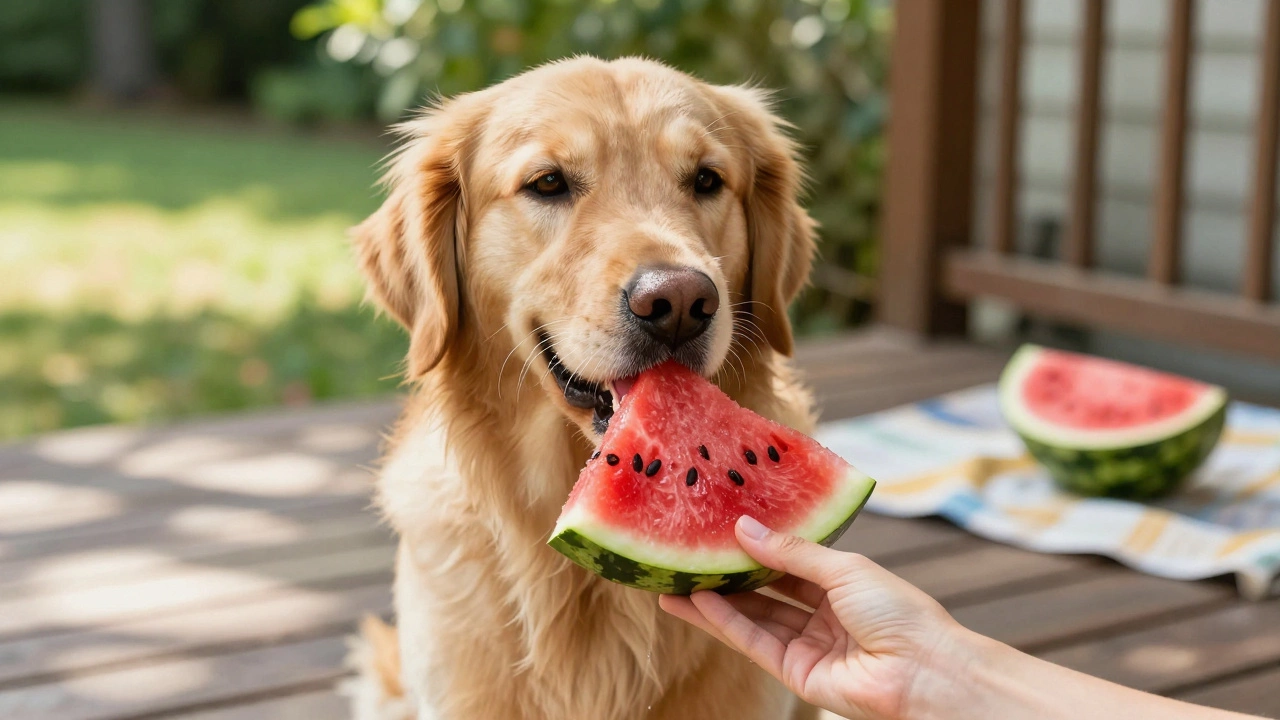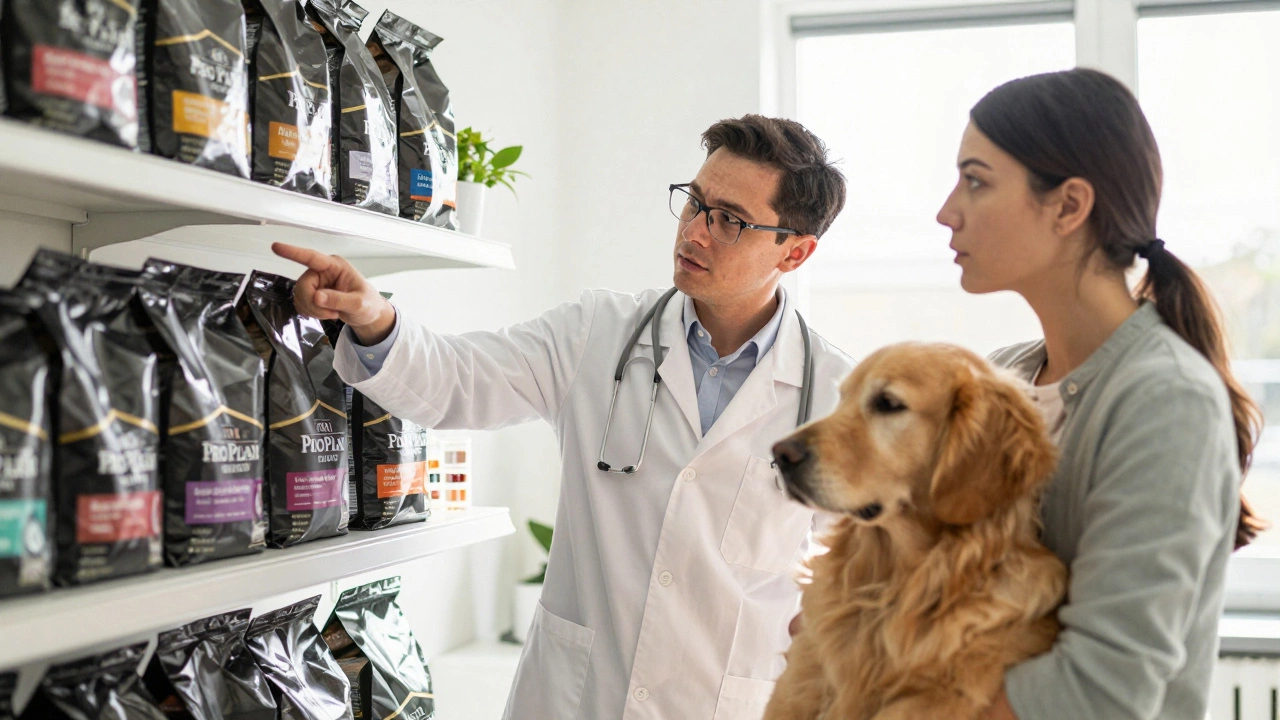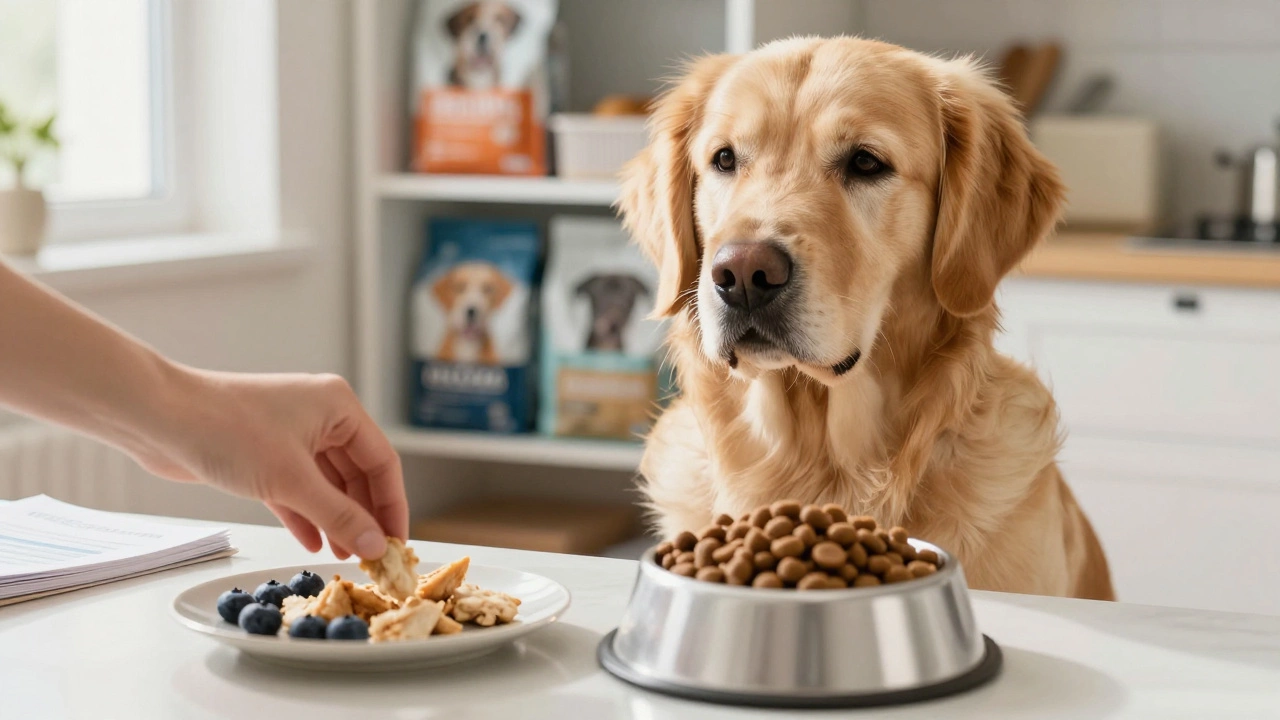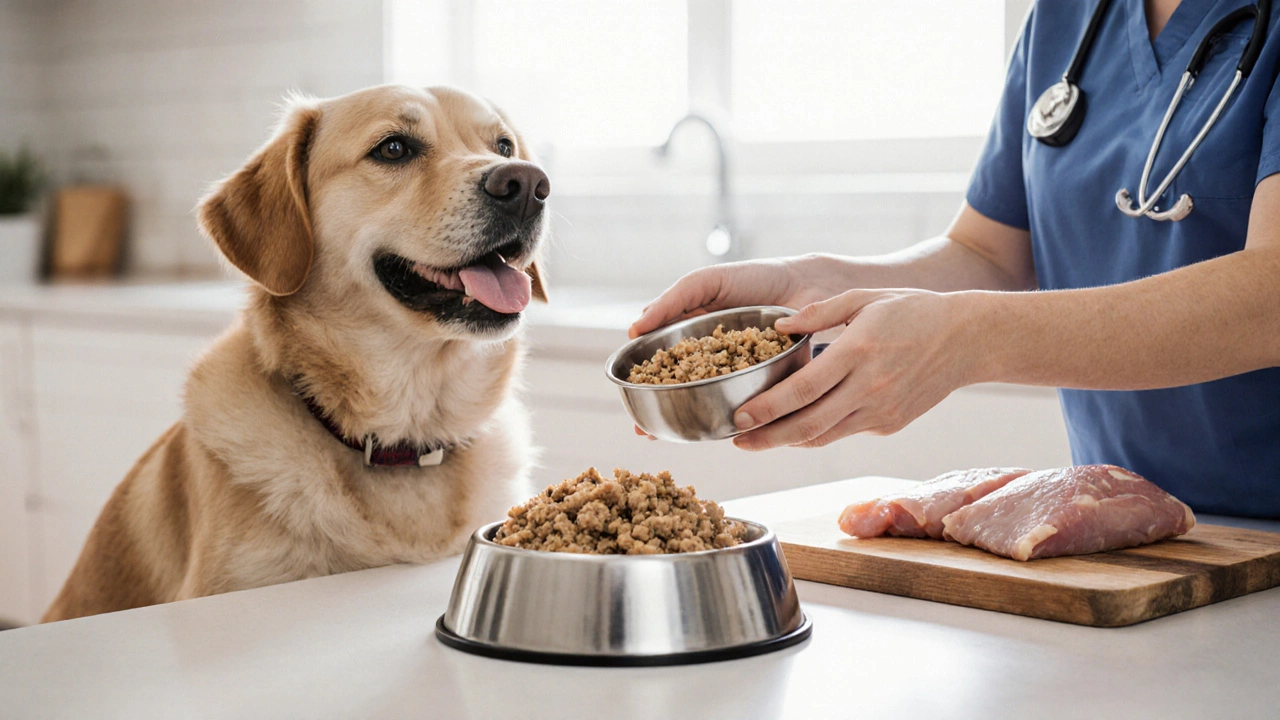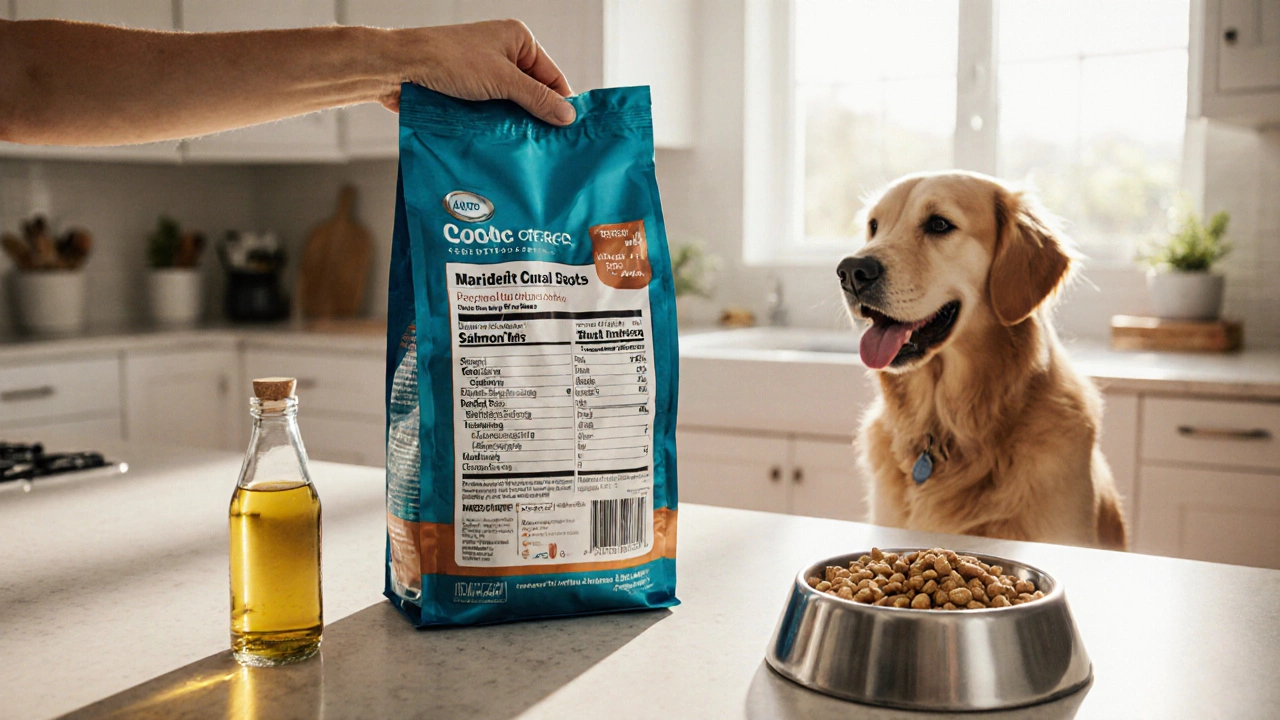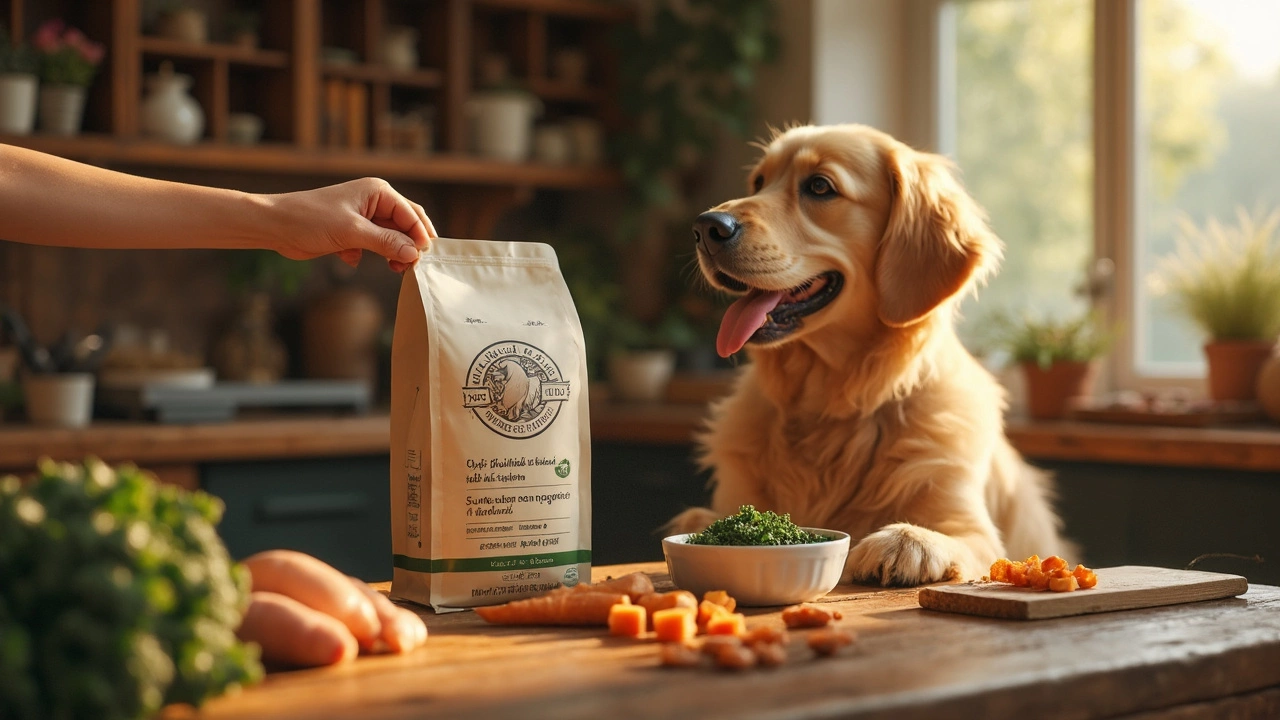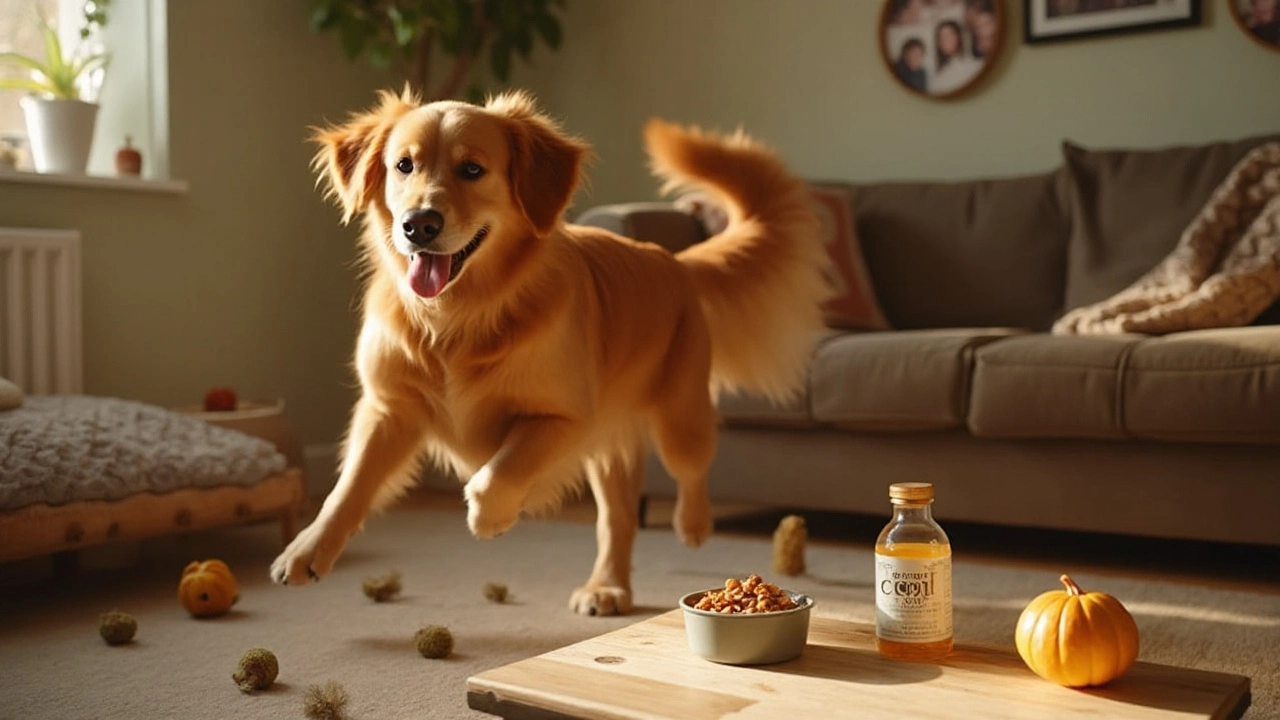Dog Nutrition Made Easy: What Every Owner Should Know
If you’ve ever stared at a bag of kibble and felt lost, you’re not alone. Feeding a dog sounds simple, but the right diet can boost energy, support joints, and keep coat shiny. Below is a no‑fluff guide that walks you through the basics, so you can feed your pup with confidence.
Build a Balanced Plate
Dogs need protein, fat, carbs, vitamins and minerals in the right mix. High‑quality animal protein (chicken, beef, lamb, fish) should be the star – it fuels muscles and supports immune health. Fat isn’t the enemy; omega‑3s from fish oil or salmon oil improve skin, coat and brain function. Carbs from sweet potatoes, rice or peas give steady energy, but they should stay secondary to protein and fat.
Look for a label that lists a real meat source as the first ingredient and includes a guaranteed analysis of protein (around 20‑30%) and fat (around 10‑15%). If you’re unsure, compare a few brands side by side – the one with clear, whole‑food ingredients usually wins.
Supplements and Special Add‑Ons
Most complete dog foods cover basic needs, but a few extras can help specific dogs. Fish oil or salmon oil adds extra omega‑3s, great for active hunting breeds. Joint‑support blends with glucosamine work well for older gundogs. If your vet approves, a daily multivitamin can fill tiny gaps, but don’t over‑dose – more isn’t better.
Some owners wonder about pumpkin. In moderation, pumpkin can soothe digestion, but too much may cause loose stools. Keep servings to a spoonful for a medium dog and watch for any upset.
Never give human vitamins or supplements unless a vet says it’s safe. Many human products contain ingredients that can be toxic to dogs.
Practical Feeding Tips
Measure meals with a cup, not a guess. Over‑feeding leads to weight gain, which can strain joints and shorten a dog’s life. A typical adult medium dog needs about 30‑40 calories per pound of body weight daily; adjust for activity level and age.
Split the daily amount into two meals to keep energy steady and reduce the chance of gulping. Fresh water should always be available – dehydration can mask other health issues.
Use treats wisely. They’re great for training, but they count toward daily calories. Choose low‑calorie options like baby carrots or commercial treats that list “≤10% of total calories.”
Avoid Common Mistakes
Don’t feed a diet based solely on “grain‑free” hype. Some grain‑free formulas replace carbs with legumes that can trigger allergies in sensitive dogs. Instead, focus on overall ingredient quality.
Skipping regular vet checks can let nutritional problems slip by. Blood work can reveal hidden deficiencies or excesses, letting you tweak the diet before a problem worsens.
Finally, remember each dog is an individual. A working gundog may need more calories and protein than a senior couch‑potato. Observe your dog’s weight, coat condition, and energy level – they’re the best indicators of whether the diet is working.
By sticking to these simple rules – real protein first, balanced fats and carbs, thoughtful supplements, measured portions, and regular vet reviews – you’ll give your dog the nutrition it needs to thrive. Happy feeding!
- Morgan Ainsworth
- 0 Comments
Is Watermelon Good for Dogs? Safe Ways to Feed It and What to Avoid
Watermelon can be a safe, hydrating treat for dogs if you remove the rind and seeds. Learn how much to give, which dogs should avoid it, and how to serve it safely.
View More- Morgan Ainsworth
- 0 Comments
Why Do So Many Vets Recommend Purina?
Vets recommend Purina because of its science-backed formulas, consistent quality, and proven results for dogs with health issues-not because of marketing. Learn why this brand stands out in dog nutrition.
View More- Morgan Ainsworth
- 0 Comments
Can I Feed My Dog Human Food Instead of Dog Food? What Veterinarians Really Say
Feeding your dog human food instead of dog food might seem kind, but it can be dangerous. Learn which foods are safe, which are toxic, and why commercial dog food is still the best choice for long-term health.
View More- Morgan Ainsworth
- 0 Comments
Can Dogs Eat Scrambled Eggs? A Simple Guide for Pet Owners
Scrambled eggs are safe for dogs when cooked plain and given in moderation. Learn how much, how often, and what to avoid when feeding eggs to your dog for optimal health.
View More- Morgan Ainsworth
- 0 Comments
Is ground chicken good for dogs? A vet-approved guide to feeding chicken to your pet
Ground chicken can be a healthy, lean protein for dogs when cooked plain and fed in moderation. Learn the risks of raw chicken, how much to feed, and what alternatives work best.
View More- Morgan Ainsworth
- 0 Comments
Healthiest Dog Food: Top Nutrient‑Rich Options for Your Dog
Discover the healthiest dog food options, how to read labels, and practical meal plans to keep your canine thriving.
View More- Morgan Ainsworth
- 0 Comments
The #1 Ingredient Your Dog Food Needs Most
Choosing the right dog food can be challenging with so many options available. But when it comes to ensuring your furry friend gets the best nutrition, the primary ingredient plays a crucial role. This article highlights the top ingredient that should be in dog food and explains why it's essential for a dog's overall health. With practical tips and interesting facts, you'll gain a deeper understanding of how to choose the best food for your dog.
View More- Morgan Ainsworth
- 0 Comments
The Healthiest Dog Food: Finding the Best for Your Pup
Choosing the healthiest dog food for your furry friend can feel overwhelming with all the options available. It's crucial to look for high-quality ingredients, appropriate nutrient balance, and credible sourcing. Avoiding additives and fillers plays a key role in ensuring your dog gets the best nutrition. With the right knowledge, you can make informed choices that cater to your dog's unique dietary needs.
View More- Morgan Ainsworth
- 0 Comments
Benefits of Bone Broth for Dogs: A Guide to Health and Nutrition
Bone broth is rich in nutrients and has been gaining popularity as a supplement for dogs. This article explores the benefits of including bone broth in a dog's diet, such as improved joint health, enhanced digestion, and better hydration. We also discuss how to prepare it safely at home, potential risks, and expert tips for introducing it to your pet. Learn everything you need to know about this healthy addition to your dog's daily regimen.
View More- Morgan Ainsworth
- 0 Comments
Affordable Alternatives to Commercial Dog Food
This article explores cost-effective alternatives to purchasing commercial dog food. Pet owners can find affordable options that maintain nutritional standards without breaking the bank. The article discusses homemade dog meals, necessary ingredients for a balanced diet, and methods to ensure safety and health of the pet. It also addresses common concerns about non-commercial dog food diets and offers practical tips for those considering the switch.
View More- Morgan Ainsworth
- 0 Comments
Is Daily Cod Liver Oil Safe for Your Dog's Health?
Cod liver oil is a popular supplement for boosting the health of our canine friends. It’s packed with omega-3 fatty acids, crucial for maintaining healthy skin, joints, and a shiny coat. This article explores whether daily supplementation is safe and beneficial for dogs, discussing potential benefits, side effects, and recommended dosages. With the right approach, cod liver oil can be a valuable addition to your pet's diet.
View More
